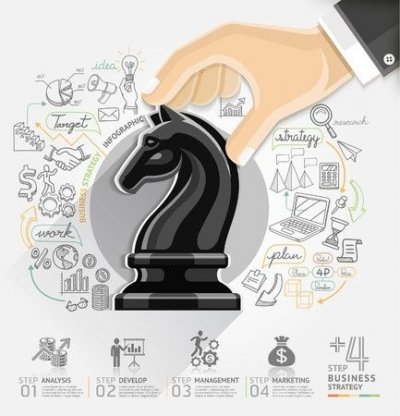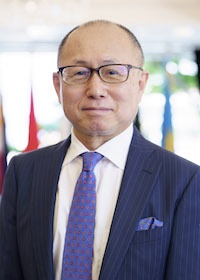About MBA
MBA stands for Master of Business Administration, and three organizations accredit MBA programs internationally (AACSB, AMBA, and EQUIS). The standard MBA program in Japan and the U.S. requires one to two years of study. The MBA is a degree in business administration, not a proprietary qualification like those for accountants and lawyers.
In the U.S., the home of the MBA, 100,000 MBAs graduate per year. In addition, it has been reported that 60% of general managers in listed companies hold an MBA degree or higher. The two major industries in which demand for MBAs is high worldwide are finance and securities and healthcare and pharmaceuticals. This is because industries that barriers to entry have traditionally protected are undergoing restructuring on a global scale.
| Accreditation | AACSB・AMBA・EQUIS |
| Degree | Executive MBA・MBA・MSc |
| Language | English・Japanese |
| Duration | 2years・1Year |
International Accreditation
What is an MBA? In pursuit of an answer to this question, a global third party organization was created in 1916 to evaluate institutions of management education. This organization, AACSB International, has over 1,400 member schools in over 90 countries, including Harvard, Stanford and Wharton, and evaluates and accredits global MBA business schools independently of any government.
International accreditation questions whether education, research, and management are being implemented to meet the expectations of the business world and its leaders. Accreditation offers unparalleled opportunities for networking and exchange with students and faculty between accredited schools. In recent years, the concept of an internationally accredited MBA has taken hold in the international press, and in Japan its value is starting to be recognized. Aside from AACSB, the EQUIS / EPAS administered AMBA and EFMD are also active as global accreditation organizations, and around the world only about 120 schools hold the "Triple Crown" of accreditation by all three bodies.
The importance of international accreditation
For business schools, an international accreditation is a mechanism which encourages continual improvement. Although an MBA tends to emphasize the educational side, accreditation also demands a focus upon high quality international research activity. Accredited business schools should be institutions of education and research, rather than simply education and training. The history of MBA education in Japan is short, and international accreditation tends to be mistaken for an "existing framework" that discourages innovation, when in fact, the opposite is true. International accreditation is what demands sound change from educational and research institutes which would otherwise have a tendency to become rigid. In this manner, accredited schools remain innovative and constantly in pursuit of improvement.
MBA Rankings
The World MBA Ranking is an educational and research institute that awards MBA programs numerical rankings based on the the real world added value of their degree. There are many types of MBA rankings, which can be broadly classified into two categories depending on the criteria.
In most cases, having an international accreditation is a prerequisite for ranking. Also, cost-effectiveness carries a large weight. It can be seen as an educational investment; in other words, how many years does it take to recover the whole cost of the tuition fees? Also, in order to measure the impact upon society as a research institution, the number of peer-reviewed theses are evaluated internationally.
Other factors by which MBA programs are ranked:
- Being an internationally certified school
- The cost of acquiring an MBA and subsequent salary increase
- Number of internationally peer-reviewed theses per faculty member
- International diversity of participants and faculty
NUCB BS prides itself on being ranked the #1 MBA program in Japan based on the above criteria.
| Objective index ranking | Subjective index ranking |
| Financial Times | Eduniversal |
| BusinessWeek | QS World Rankings |
| Forbes | Times Higher Education |
| The Economist | |
| US News and World Report |
The value of an MBA
Acquiring an MBA has both a financial and personal value.
The financial value of an MBA can be easily measured by the impact on job opportunity and salary. In Japan, appreciation of the value of an MBA education has deepened, leading to the dramatic increase of name recognition of MBA programs in the last 20 years and the development of these programs in order to meet higher demands.
The personal value of acquiring an MBA can be measured in terms of the network developed in the academic environment and by the diversity of participants. An MBA program offers participants a diverse environment of companies, industries, occupations, work history, nationalities, regions, ages, and genders. For those who gather to enhance their own leadership in an MBA program, this is truly an education in being a member of society.
The measurable impact of an MBA
Survey results show that 70% of graduates received a promotion and an average salary increase of 2.2 million yen (in the form of job title allowance) within three years of obtaining an MBA. In fact, some major domestic companies are considering future developments such as supporting MBA acquisition as part of employee education and setting MBA acquisition as a selection criteria for promotion to managerial positions.
The Case Method
An MBA is a practical education aimed at enhancing leadership abilities and decision-making skills through the Case Method. Earning an MBA should be seen as an investment in your future. One of the most famous MBA holders is George W. Bush, whose reputation as a leader is less about his knowledge of marketing theories or financial strategies and more about his ability to lead a team while navigating differing opinions and values. In short, MBA programs focus on cultivating business leaders and decision-makers. However, it's hard to convey the real experience with just words—so it's best to watch a video that shows the atmosphere of an MBA classroom.
The MBA classroom: home of the open-ended question and its many possible answers
In MBA classes, extreme and thought-provoking questions are often posed. For example, "If you were the protagonist in the case study, would you disclose a ten-year-old contamination issue reported by your subordinates shortly after taking your new position, or would you keep quiet?" These questions don't have absolute right answers and sometimes require ethical judgment.
When considering what a "correct" decision in business means, it’s important to realize that everyone makes decisions believing they're correct at the moment. Even if a decision is later deemed a failure, the outcome could have been different under different circumstances. This leads to the idea that MBA education focuses not on always getting the "right" answer, but rather on developing the mindset of making decisions without fear of failure.
Global MBA in Japan
According to estimates made by the Ministry of Education, Culture, Sports, Science and Technology (MEXT), currently about 2,500 people are enrolled in an MBA program in Japan. The acquisition ratio to the population of sociology graduate school students, including business administration students, is 0.2%– lower than not only that of Europe and the United States (OECE average is 2%), but also lower than that of neighboring Korea where the ratio is 0.5%.
However, as a result of industrial reorganization and the mobilization and globalization of human resources, the value of an MBA education has been seen in a new light domestically. Therefore, government ministries such as MEXT, the Ministry of Health, Labor and Welfare and the Ministry of Economy, Trade and Industry are becoming recognized as seats of learning for members of society.
In fact, in Japan, the more that human resources are exchanged within and between companies, the more that an MBA degree is seen as a reliable partner in the eyes of management and human resources. More and more lately an MBA is set as a requirement for achieving a management position in the types of industries where global personnel changes are more likely to occur, and there is a sense that the appreciation of the worth of an MBA education is making gradual progress in Japan.
The current situation and challenges of domestic MBA programs in Japan
A key difference between business schools offering MBA programs lies not in the subjects or fields they cover, but in two main areas: the teaching methods employed, such as the "case method," and the faculty leading those methods within the classroom. It is fair to say that traditional educational styles focusing solely on seminars or passive reading, which are more suited for training researchers, are not appropriate environments for cultivating core corporate talent. However, in domestic MBA programs, these outdated teaching styles are still commonly practiced, much like a Galapagos syndrome.
This translation emphasizes the importance of interactive, practical learning methods like the case method and the role of skilled professors in fostering business leaders, in contrast to outdated passive educational approaches that are still prevalent in Japan’s MBA landscape.
One of the reasons why domestic MBAs in Japan might be perceived as insular or "Galapagos-like" is due to the nature of the "curriculum." This doesn't refer to the course titles listed in a catalog, but rather to the underlying design of the curriculum itself. MBA curriculums are often created by a handful of professors at the business school, and the names of the courses can be arbitrarily defined. What's essential, however, is how the curriculum is structured to achieve the business school’s mission—specifically, its goals for human resource development. Therefore, discussions should focus on what competencies the program should develop and how the E/MBA program should be structured.
To truly understand this, one must examine the "syllabus" of the MBA program. By reviewing the syllabus, which acts as a course plan (essentially a product description), it is possible to check whether the professor in charge of the course has understood the human resource development goals of the MBA program, clearly defined the positioning of the course, set appropriate learning goals, and identified the materials (such as case studies) needed to achieve these goals. The existence of such rigor across all offered courses is a fundamental prerequisite for any program to call itself an MBA program.
Is the MBA an education for a manager, or a leader?
An MBA curriculum must balance the roles of "manager" and "leader." Managers are constantly thinking of their company as a combination of people, goods, and money. A leader takes on challenges such as new products, new businesses, and entrepreneurship. It is difficult to pursue these two at the same time in one MBA program, but to be able to demonstrate a balance between these two elements when designing an MBA curriculum is a necessary requirement for business schools today.
What should an MBA curriculum look like?
The curriculum of an MBA program must support the development of 13 competencies required for management education. One of the international accreditation bodies established in 1967, AMBA (Association of MBAs), established these as 13 core areas of MBA education and inspects which subjects in the curriculum correspond to these 13 areas, verifying that the requirements of the MBA curriculum have been met. Recently, there has been much discussion in Japan around what should comprise an MBA core curriculum. However, regardless of the outcome of these discussions, an internationally accredited MBA curriculum must be systematically and comprehensively provided in the context of human resource development goals.
Degrees available at the business school
As previously stated, the MBA is a degree which refers to the systematic completion of a masters level management education. In terms of related degrees, NUCB BS offers the EMBA (Executive MBA) which is targeted at employees with more practical working experience than those targeted by the MBA. Also, the MSc offers an opportunity for a more specialist education in for example accounting, tax, finance, marketing, management etc, aimed at those with less working experience than applicants to the MBA.
| Program | Type | Target | Work Exp. |
|---|---|---|---|
| Executive MBA (JP) | Master | Core human resources | 10 years |
| MBA (JP) | Master | Next generation leaders | 5 years |
| Specialized MBA (JP) | Master | Industry-specific leaders | 3 years |
| Global MBA (EN) | Master | International leaders | 3 years |
| MSc (JP/EN) | Master | Specialists | none |
| PreMBA (JP) | Certificate | Core human resources | 3 years |
What is an Executive MBA?
The MBA and Executive MBA (EMBA) are similar degrees. The difference between the two are simple: the EMBA requires enrollees to have at least 10 years working experience and, in short, is aimed at middle management candidates in their 40s. In Europe and the US, where MBA education is advanced and there is a clear distinction between MBA and EMBA programs, the managers that higher business education is targeted towards can be divided broadly into MBA or EMBA candidates. Business schools that offer a separate EMBA and MBA will naturally position the former towards the development of core human resources (candidates for managerial positions) and the latter towards highly independent human resources (entrepreneurial candidates) in the future.
What is a Specialized MBA?
Looking at MBA programs around the world, many schools offer an "MBA in ____," indicating some particular area of educational focus. First and foremost, an MBA should be a place to study business administration– "so how exactly can you have a focus?" you may be thinking. In fact, this sort of program is called a Specialized MBA. Similarly to the MSc, rather than specializing in a particular area of business administration, a Specialized MBA can focus upon a specific business industry or topic such as healthcare, international business or entrepreneurship whilst comprehensively dealing with the field of business administration. This strong networking opportunity may be particularly popular amongst candidates who hold a strong interest in a specific background or industry.
What is a Pre-MBA?
There are several pre-MBA programs, held in preparation for entering an MBA program. This is a system whereby a participant , upon studying for a certain length of time (MEXT specifies 120 hours or more), can certify their learning, regardless of whether they are a university graduate. This certifies completion of a prescribed curriculum and can be an advantageous addition to your resume.
After all, an MBA program may be attractive, but two years of study is demanding, so recently the option to pursue Executive Education has been developed to meet the need for a deeper understanding of current areas of business. This is a business school non-degree program (often called an MBA "single course" in Japan) conducted as part of adult education, and is widely used in Western societies as part of employee training, offered to employees by their companies, and is expected to expand in Japan in future.
What is the MBA classroom style?
The MBA can be broadly classified into one of three types: a full-time MBA or part-time MBA, as an educational method, and an online MBA delivered remotely. The part-time MBA may be available as evening classes or as a weekend program and the online MBA can be fully completed remotely or in some cases as a "blend" of remote learning and in-person classes. Despite the convenience of being able to take classes remotely, it is a challenge to maintain motivation levels over two years. It may take more time to solve the difficult problem of how to improve the advanced communication and negotiation ability that is a feature of MBA holders, online.
Introducing a live virtual MBA
Under the influence of the coronavirus pandemic, internationally accredited schools around the world have switched to a live, remote class delivery and MBAs have rapidly gone online. It is felt that any business school that finally succeeds in devising a way to provide that lively teaching method of Case Method, a typical feature of an MBA education, online, will survive in the future.
New Articles
-
MBA Japan
- #MBA
- #Global MBA
- #MBA in Japan
- #Accreditation

-
Online MBA Basics 2023
- #MBA
- #International

-
Partnership in International Management: Our school joins the prestigious PIM Network
- #MBA
- #StudyAbroad
- #PartnerSchool
- #International

-
Online education and live virtual courses
- #MBA
- #Live Virtual Courses

-
Business School Myths, Misconceptions, and Questions
- #Business School
- #International Accreditation

-
About international accreditation
- #Global MBA
- #International Accreditation

-
Difference between MBA and EMBA
- #MBA
- #EMBA

-
The Evolution of Business Schools in Japan
- #Business School

-
MBA and Women's Careers
- #Women
- #MBA

-
Difference between case study and case method
- #Case Method
- #Case Study
- #Case
- #MBA


 Brochure
Brochure
 Info Session
Info Session
 Application
Application
 Alumni Voices
Alumni Voices




















